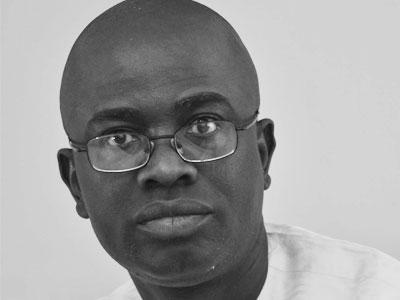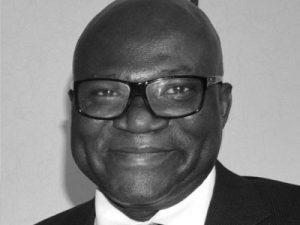Sustaining a weekly column has become increasingly frustrating given the current wave of kidnappings across the country. One begins to sound like a broken record on so many critical issues. Considering what has been identified as our collective national amnesia, I am not surprised to receive messages from readers who ask why I have not commented on kidnappings. Yet, this is an issue on which I have intervened numerous times, including reporting contributions I made to ‘ransom funds’ for the release of some victims. Perhaps more Nigerians are now paying attention to this serious national security challenge because kidnappers have moved from the hinterland to the Federal Capital Territory (FCT).
The kidnapping of six young ladies from their Bwari (Abuja) home on 9 January, along with their father, Mansoor Al-Kadriyar, may have been the tipping point. In releasing Mr Al-Kadriyah, the kidnappers asked him to go and find N60 million to ransom his six daughters, not later than last Friday. Unable to meet the payment deadline, the kidnappers killed one of his daughters, Nabeeha, a 400-level student of Biological Sciences, Ahmadu Bello University (ABU), Zaria and dumped her body on the street. When concerned citizens, including a former Minister, Isa Pantami (who announced that his friends had raised N50 million) invoked the idea of crowdsourcing funds online to secure the release of the remaining five daughters, the kidnappers jacked the ransom money to N100 million.
We pray for the safe return of the five Al-Kadriyar siblings—including Najeebah, a 500-level Quantity Surveying student and Nadherah, a 300-level Zoology student. But President Bola Tinubu must go beyond the usual ‘summon of Service Chiefs’ perfected by his predecessor to no result. Besides, action speaks louder than words. When you vote N1.4 billion for arms and ammunition for the police, and a whopping sum of N31.915 billion to erect fanciful buildings for the Office of the National Security Adviser (as captured in the 2024 Budget by a Daily Trust report yesterday), it is obvious that the administration does not yet appreciate the enormity of the security problems we grapple with in Nigeria today.
On 26th of last December, the district head of Pandan-Gwari in Bwari area council of the FCT was kidnapped right in his palace alongside five of his subjects. Their whereabouts remain unknown even though the criminals have reportedly made a ransom demand of N50 million. Last Thursday, the invaders moved to Kawu community in the same Bwari area council. The Councillor representing the area, Abdulmumini Zakari, told PUNCH newspaper that gunmen numbering about 40 “divided themselves into groups and some went into the palace of the district head, Abdurrahman Ali, where they abducted his son, Lukman, and his wife, whom he married two weeks ago.” While the challenge goes beyond Abuja, the symbolism of a federal capital city where residents dread moving around due to fear of kidnappers is quite telling.
From North to South, East to West, local economies in most rural areas across the country today are comatose because peasant farmers have been forced to abandon their farms due to incessant kidnappings. Amnesty International concluded its report last year: “The Nigerian authorities have left rural communities at the mercy of rampaging gunmen.” And we can see the result in the astronomical cost of basic foodstuff.
Meanwhile, this national problem has been with us for more than a decade. As far back as 2012, the African Insurance Organization (AIO) designated our country the kidnap for ransom capital of the world. Nigeria, according to the AIO at the 18th African reinsurance Forum in Mauritius, accounted for 25% of global kidnappings in 2011. “The number of kidnaps for ransom in Africa continued to increase. In the first half of 2011, Africa’s proportion of the global total increased from 23 per cent in 2010 to 34 per cent. Nigeria is now the kidnap for ransom capital of the world, accounting for a quarter of globally reported cases,” the AIO stated. And that was 12 years ago. If anything, the situation has worsened in the last decade. But before I conclude, let me excerpt from my 18 March 2021 column, ‘Kidnappings Incorporated’.
===================================== =============================
Nuhu Tanko is a gardener at the Shehu Musa Yar’Adua Centre, Abuja whose two brothers were kidnapped on 31st December 2020 on the way from their village (Dakunu in Chukum local government of Kaduna) to the state capital. According to their account, the kidnappers, clad in military camouflage, were more than 50 in number, all on motor bikes, with each carrying at least two guns. They were all masked. The two brothers were also on a motor bike which was burnt by their abductors after they were kidnapped. At the Katarimape forest where they were taken, the duo met three other victims who, like them, had their hands and feet tied. Each day, the five captives were given a cup of water and some local biscuits to share. When the kidnappers eventually reached the Tanko family, they demanded a ransom of N10 million. After disposing of their small piece of land and everything else the family could sell, negotiations spanned three weeks.

Eventually, the family reached out to Tunde Ahmadu, the Yar’Adua Centre Chief Operating Officer to help raise money. Tunde was allowed to listen in on one of the calls with kidnappers who threatened to kill the two boys if the ransom money was not produced on time. After gathering N900,000 in cash for the two (and having been warned never to involve the police if they wanted them back alive), a Tanko family ‘emissary’ took the money to a specified location in Katarimape forest as directed by the kidnappers. A few hours later, the two brothers returned home. “Most people have left our village because of kidnappings. It’s like bandits have taken over our village and the surrounding communities,” Tanko lamented while sharing the tragic saga with me. “They kidnap people, kill and rape women, even if the women are pregnant.”
The pathetic picture painted by Tanko is not different from the account of Mallam Iliya Gwaram, father of one of the abducted Jangebe school girls in Zamfara State, who himself was in captivity at the time the female students were brought to join them. “l saw the schoolgirls being brought into where we were camped by our abductors. At first, l didn’t know who they were or where they were coming from, until l saw the face of my scared daughter looking at me. I quickly told some of the girls who were brought along with her and sat near me to tell my child not to show any indication that she even knew me,” Gwaram recounted after his release a few days later. “The girls were brave enough and they kept our little secret up to the last of their four days stay with us. l never cried in the whole of my life like l cried the day the girls were taken back because l felt it was the last time l would see my daughter…”
ENDNOTE: With the invasion of kidnappers, ‘one-chance’ vehicle robbers and sundry other criminal cartels, Abuja is becoming increasingly unsafe for residents. Respected security analyst and lawyer, Bulama Bukarti, has explained the reason why. “Over 9,700 people were killed last year in 2023 across Nigeria. Abuja cannot be immune to that because, as long as you leave insecurity to fester and flourish across Nigeria, then, it will find its way to Abuja,” he said while noting that what happens within the FCT is a reflection of the security challenge in Nigeria. “The way to secure Abuja is to take the fight to the bandits and terrorists in other parts of the country.”
It is difficult to fault Bukarti’s thesis. The FCT Minister, Nyeson Wike, may have his job cut out for him. But this problem is beyond him. Until the whole of Nigeria is safe and secure, residents of Abuja deceive themselves to imagine that they can be safe. That’s why the federal government must collaborate with the states to find a solution to the growing challenge of insecurity in Nigeria.
Appeal Court and ‘The Ben Johnson Way’
At a colourful ceremony in Owerri on Monday, attended by President Bola Tinubu, former President Olusegun Obasanjo and several others, Imo State Governor, Hope Uzodimma was sworn in for a second term in office. I join in congratulating the governor and I genuinely wish him success. Especially now that he has legitimately earned the votes of his people. But it is also on record that Uzodimma came fourth in the election that brought him to power for his first term in January 2020. His controversial mandate was secured after a judgement that has done enormous damage to the reputation of the apex court and many of the Justices. And he was appropriately dubbed ‘Supreme Court Governor’, after admitting that he earned his victory ‘The Ben Johnson Way’.
For those who may have forgotten, on 24 September 1988 at the Seoul Olympics in South Korea, Canadian athlete, Ben Johnson won the 100 metres final with a then unprecedented record of 9.79 seconds. Three days later, the Olympic Doping Control Center found that Johnson’s urine sample contained a banned substance. Not only was the gold medal withdrawn and his record wiped but the shame and disgrace that followed has endured till today. So, despite the best efforts of Uzodimma’s media minders after he inadvertently made that disclosure, the only enduring interpretation to ‘The Ben Johnson Way’ is that the governor cheated his way to power in January 2020. If the governor meant speed, as they tried to explain after the gaffe, he would have referenced Usain Bolt who has broken all records (including Ben Johnson’s dubious one) in the race. While that is now ancient history, we should be concerned that the judiciary is encouraging ‘The Ben Johnson Way’ to power in Nigeria.
Following last week’s judgement of the Supreme Court that affirmed the election of Caleb Mutfwang as Governor of Plateau State, it is now established that the Court of Appeal which is ordinarily supposed to promote the rule of law, is at the core of democratic perversion in the country. Simon Lalong, the immediate past Governor of Plateau State, may be a gentleman (and he is a man I admire), but given the judicial circumstance under which he arrived at the National Assembly, he has earned the sobriquet ‘Appeal Court Senator’. Same for several other lawmakers from the state.
The sordid drama started last November when a Court of Appeal panel, led by Justice Elfrieda Williams-Dawodu, unanimously nullified the election of Governor Muftwang on grounds that he was not validly nominated by the main opposition Peoples Democratic Party (PDP). Based on that, victory was awarded to the defeated All Progressives Party (APC) candidate, Nentawe Goshwe. And on the same grounds, the court nullified the elections of PDP members in national and state assemblies’ elections with their defeated opponents in APC and Labour Party (LP) awarded their seats. While the governor had the option of going further to the supreme court, the lawmakers had nowhere else to turn. But those judgments have been declared perverse by the Supreme Court. “We have held in a plethora of cases that the sponsorship of a candidate for election is an internal affair of a political party. The Court of Appeal lacks the jurisdiction to determine the validity of the candidacy of the PDP,” Justice Emmanuel Agim said in the lead judgement. In consenting, Justice Inyang Okoro, who headed the five-member panel, said: “My only worry is that a lot of people have suffered as a result of the Court of Appeal’s decision. It was absolutely wrong.”
For context, Lalong contested on the platform of the APC in Plateau South Senatorial seat, secured 91,674 votes and was defeated by Napoleon Bali of the PDP who garnered 148,844 votes. That is a massive gap. Hon Beni Lar (daughter of Second Republic Governor of the State and founding PDP national chairman, Solomon Lar), secured 42,008 votes to defeat Vincent Bulus of the APC who has now displaced her despite getting only 21,346 votes. In Shendam/Quanpan/Mikan federal constituency, Isaac Kwali of the PDP who scored 74,646 votes has now been displaced by John Dafan of the APC who secured 43,467 votes. I can go on to highlight how the voters have been shortchanged by the Appeal Court regarding National Assembly representation, but the real scandal is in the state House of Assembly. From winning seven of the 24 seats, the APC now has 22 members after the Appeal Court panel led by Justice Okon Abang ‘dashed’ the party 15 of the 16 seats won by the PDP, donating the remaining one to the Labour Party (LP).
I don’t know what the PDP can achieve with their petition to the National Judicial Commission (NJC) but a crisis of confidence has been created in our judiciary over the sacking of duly elected lawmakers by the Court of Appeal on grounds that are now officially known to be spurious. If not suspicious. The case of the ousted Senate Minority Whip, Darlington Nwokocha, has shown clearly that there may be no remedy for all the short-changed Plateau State lawmakers. Nwokocha of LP had won the election to represent Abia Central in the senate with massive votes haul of 92,116 to 41,477 votes by his closest opponent (now usurper), Augustine Akubundu of the PDP. On similar pre-election grounds about party nomination, the Appeal Court nullified Nwokocha’s election and awarded the seat to Akubundu! When Nwokocha took the matter further to the Supreme Court, he was slammed with a two million Naira fine.
That election matters have done incalculable damage to our judiciary can also be glimpsed from the inconsistencies that arise from our courts. So, we should be concerned that neither those who cast the ballots (the electorate) nor those who count them (the Independent National Electoral Commission) now matter. In the instant case, it is not only the credibility of the Court of Appeal that is at stake, the integrity of its president, Justice Monica Dongban-Mensem is also being called to question. “I personally believe that the current President of the Court of Appeal who is from Plateau State is complicit in the injustice. She comes from the same LGA – Shendam – as the immediate past governor whom they have now installed as Senator for Plateau Central. I would go as far as to say she has been privy to everything that happened in these Court of Appeal violations,” Chidi Odinkalu, lawyer and a former Chairman of the National Human Rights Commission (NHRC) wrote last weekend.
In my February 2020 column, ‘When Judges Become Our Electoral College’, I decried a situation in which the will of the electorate is being cynically vetoed by some men and women on the bench based on technicalities and other spurious grounds. “If this democracy is to survive, it is imperative that the judiciary as an institution and judges as individuals are not only impartial to those who appear before them but also that the wider public have the confidence that cases affecting their well-being will be decided fairly and in accordance with the law,” I wrote four years ago.
I don’t know how the Court of Appeal will wriggle out of this self-inflicted crisis. But one thing is certain: Democracy cannot survive in an environment where Judges help politicians to secure power ‘The Ben Johnson Way.’






















